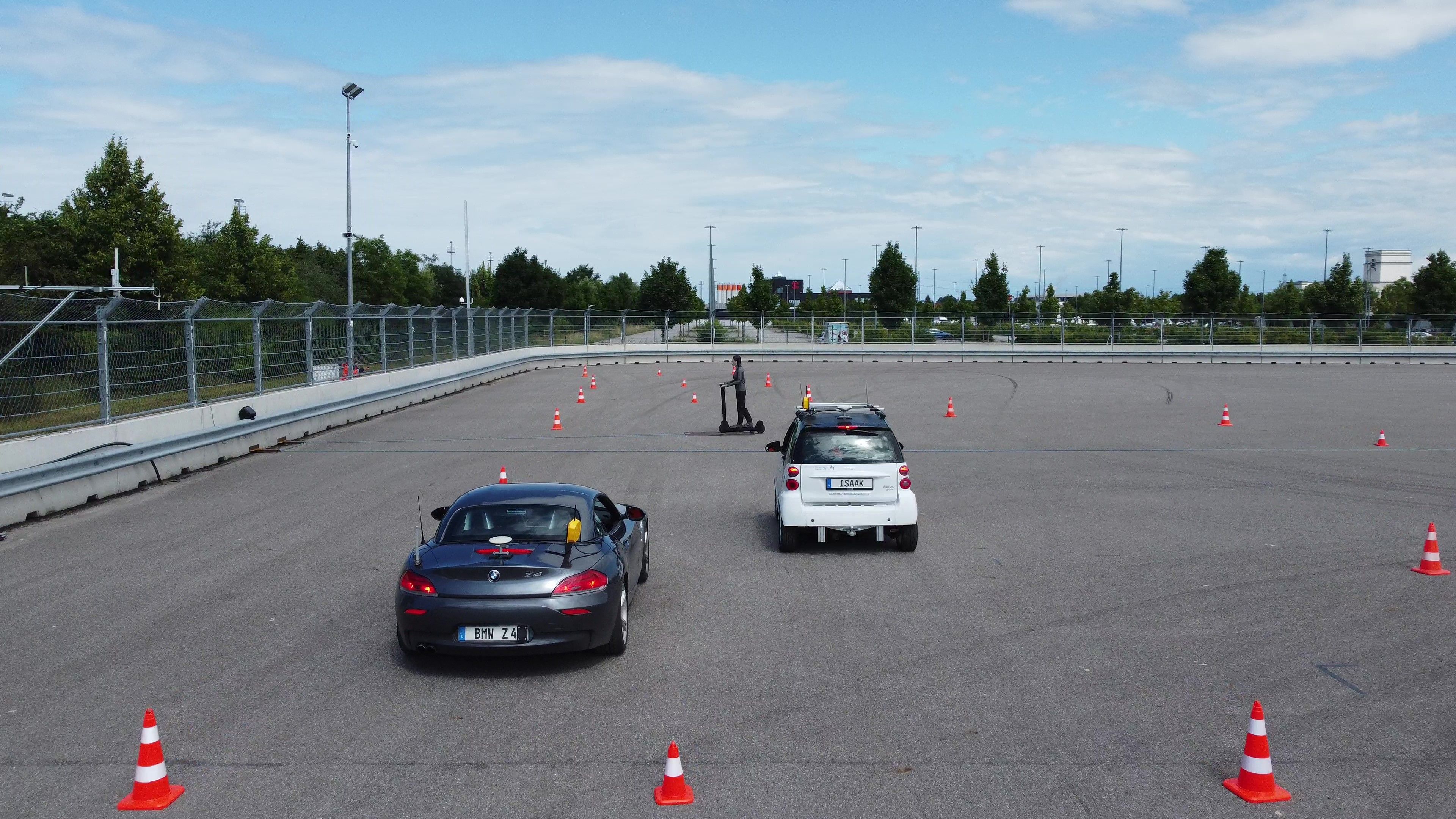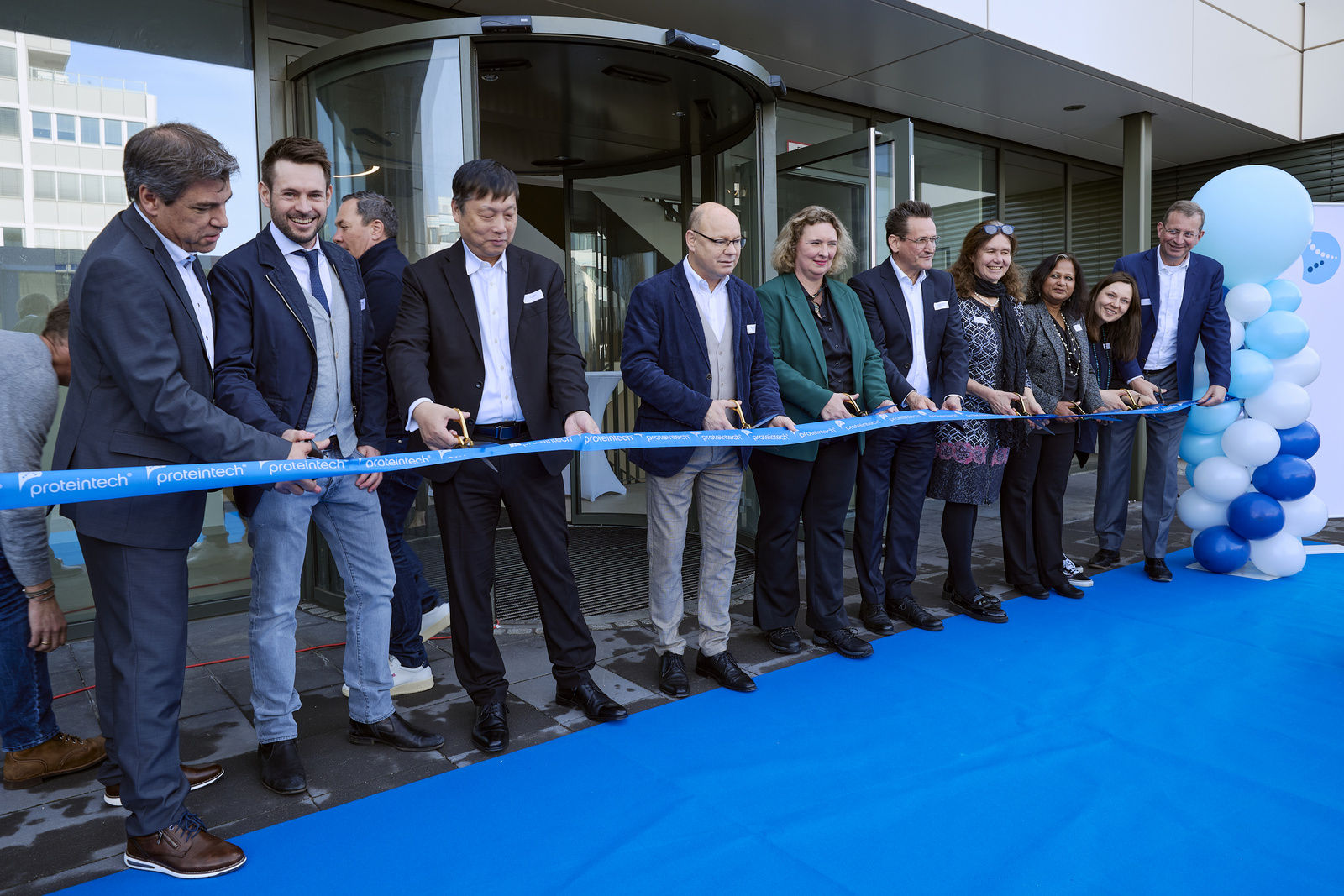- Startseite -
- Digital Bavaria -
- Blog #bytevaria - Beyond crash test dummies: Bavarian institutions are collaborating to make autonomous driving safe.
© Technical University Ingolstadt
Simulations at CARISSMA in Ingolstadt using a hexapod
Beyond crash test dummies: Bavarian institutions are collaborating to make autonomous driving safe.
Self-driving vehicles are a groundbreaking concept in traffic and still a cause of much scepticism for the general public. Fully autonomous solutions have the potential to be significantly safer than human-driven vehicles. That’s why in the future, autonomous driving will make our roads a safer place. However, to achieve widespread consumer acceptance, the safety of both drivers and the environment must be assured. New autonomous vehicle testing approaches, industry-wide standards and regulations have to be developed. As one of the world’s leading automotive innovation and manufacturing hubs, Bavaria is host to many global, national and local initiatives in the field. Here are some key players and projects.
Universities provide platforms for cutting edge testing methods
CARISSMA, for example, at the Technical University of Applied Sciences Ingolstadt (THI) is a leading scientific centre for vehicle safety in Germany. Its testbed facilities are probably the most advanced in Europe, supporting the entire cycle of vehicle safety system development - from the initial idea to software and systems integrated in the complete vehicle. A test center, driving simulators, an outdoor terrain as well as various labs allow scientists to advance the development of autonomous driving through state-of-the-art testing methods both in the virtual and real world.


© Technical University Ingolstadt
Testing real life traffic situations at the CARISSMA outdoor testing site
In real road traffic, there are an infinite number of possible safety risks that cannot be fully mapped in road tests. Therefore, CARISSMA research focuses on the development of new and more efficient test methods and scenarios, e.g. the representation of different weather conditions in the laboratory and in the simulation. As such it is also an invaluable partner for car manufacturers, OEMs and partnering R&D centers around the world.
Standards a “must” for self-driving
To ensure the compatibility of test results and data-sharing among collaboration partners, one thing is key: standards. Munich-based ASAM (Association for Standardisation of Automation and Measuring Systems) works on developing standards for verification & validation of autonomous vehicles together with its member base. They work closely with initiatives such as CARISSMA to define relevant standards, particularly for simulating scenarios for autonomous driving. ASAM standards are implemented by companies all over the world.
Experts from suppliers, manufacturers, tool vendors, engineering service providers, and research institutes from around the world meet at ASAM to agree on standards for development and testing within the automotive industry. These include standards for simulated environments such as ASAM OpenDRIVE, which defines how the geometry of roads, lanes and objects, and markings on and next to roads should be described. Another standard, ASAM OpenSCENARIO, describes complex maneuvers that involve multiple entities such as vehicles, pedestrians and other traffic participants.

Cybersecurity threats require new solutions for risk hazard and risk analysis
Headquartered in Munich, TÜV SÜD is an international testing and certification institute and has been at the cutting edge of vehicle testing for over 100 years. In the era of highly automated driving, the company assists clients in the safe development and smooth global roll-out of automated technologies.
Like CARISSMA and ASAM, its team of multidisciplinary experts collaborates with an extensive global network of commercial companies, universities, regulatory bodies and research institutes to tackle the multiple new industry challenges.
One of these challenges is cybersecurity: As connectivity levels increase, the risk of hacker attacks on electronic vehicle systems will grow. TÜV SÜD is developing new solutions for hazard and risk analysis and data privacy to address these new threats. For example, it has developed a cybersecurity assessment method which is based on the latest international cybersecurity standards. The method helps manufacturers design vehicles with sound security concepts.
The initiatives in the field of safety and security complement the extensive automated driving developments taking place all over Bavaria. Next to major manufacturers, OEMs and research institutes, the ecosystem encompasses many other players focusing on specific issues. For example, at the OTH university in Regensburg, project “FLASHMOB KI” is underway, developing solutions for automated public transport in rural areas: an AI-based system will eliminate fixed time schedules for buses in the future, allowing passengers to book a ride on-demand.
At the university of Passau, the FORWISS institute is working with 16 other project partners on the @CITY project to tackle the challenges of automated driving in urban environments: since interactions with pedestrians and other vehicles are more frequent and road architectures are more complex, highly accurate map data are required. FORWISS is acting as a software development partner to make sure they are available in real-time.
To make autonomous driving a reality, cross-industry innovation and collaboration are a prerequisite. Bavaria is at the forefront of this movement connecting players locally and globally. Already today, the results of these innovations are starting to make their way onto the road today: look forward to roads becoming a safer place in the near future.
Want to know more?

How a passion can transform into a successful business

Chicago/Planegg-Martinsried: the US-based Proteintech Group triples the size of its site in Bavaria – with a key focus on research & development, production and logistics

